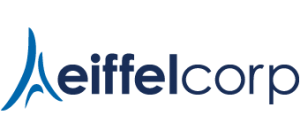
COVID-19 to change the face of digital education in Africa
Once the COVID-19 crisis is over, the face of digital education will change forever. Decision-making around providing stable and quality-driven access and productivity to support remote learning and working will be pushed to the top of the list.
So says Myles Thies, director of Digital Learning Services at Eiffel Corp, an e-earning and blended learning specialist.
One technology that will be increasingly used to support digital learning in Africa, he says, is the cloud. “We have experienced a gradual migration to cloud-based offerings over the last three years but this is now accelerating quickly due to the challenges revealed by the pandemic.”
Cloud technologies such as those provided by large players like Microsoft Azure have become a critical component of how the company rolls out, maintains and supports its technology services. Clients that had the foresight to embark on a cloud-based strategy have been the least technically affected by the current lockdown restrictions and have had far less security, availability, latency and other challenges to deal with than others, he adds.
Educational institutions are traditionally slower at making big strategic decisions as they tend to involve multiple stakeholders and have smaller budgets to play with, says Thies. Under the current situation, however, plans already in place to move to the cloud are being pushed through far more quickly and decision that affect how the students and learners access their digital learning spaces are getting major focus whereas they were only secondary considerations before.
Maturing open source
“We also see a big shift in the acceptance and application of maturing open source solutions, paired with professional support and services that we offer,” he adds. “With the traditionally more open structures prevalent in learning institutions, open source technology has enjoyed a wider acceptance. This has allowed us to provide highly customised and needs-specific solutions with minimal configuration and development for a fraction of the cost of international proprietary systems.”
This means that Eiffel Corp can service many more customers who would not consider expensive enterprise systems such a learning management system, or student management system, due to the historical costs associated with three to five-year dollar-based contracts. “Our rand-based pricing models guarantees resourcing and budgetary certainty which is critical, particularly at a time like this when exchange rates are causing sleepless nights for any institution with a foreign denominated payment.”
A lot to be done
Thies says there is still a lot to be done in Africa.
“Capable and dependable infrastructure is still lacking in places and access to information and the Internet is well below other parts of the developing world. Authorities in many African countries have only just started or are still in the early stages of enabling digital economies and strategies.”
He says pockets have emerged that are showing how fast things can be changed and caught up. “One of the great benefits of being a latecomer to the development party is that countries can apply the latest innovations without the complicated legacy of past technology and regulation.”
Speaking of how Eiffel Corp is addressing Africa’s challenges, he says, as a rule, his organisation thinks about the context in which its technology solutions are used.
“Being born and bred in Africa means we understand the challenges faced by the typical learner who encounters myriad technical and resources shortages on a daily basis. We design and implement systems that meet the needs of data-scarce environments but which are enabled to cater for rapid growth, adaptation and increasingly sophisticated levels of application as our customer and their stakeholders’ capabilities grow.”



